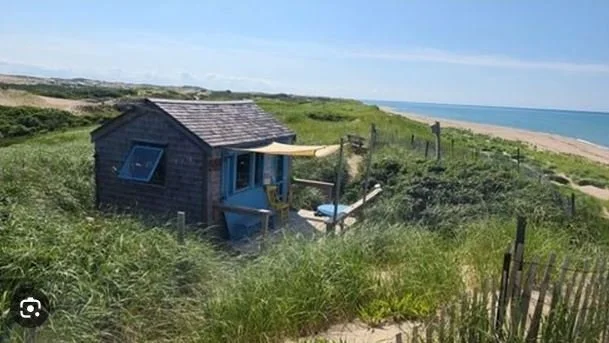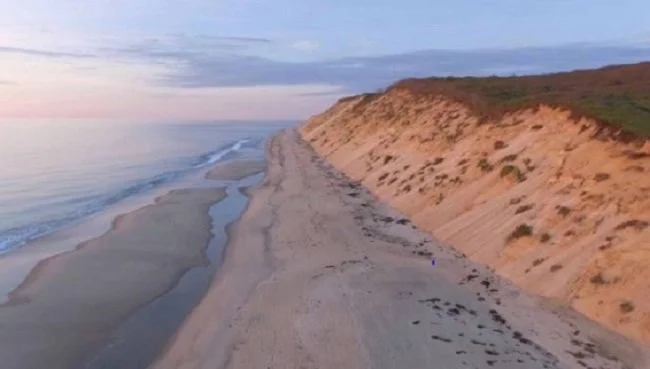An Excerpt from THE TAKING by Dona Masi, a haunting and emotional alien abduction novel
April 30, 2025
My home is New Hampshire. I made it the main setting of my novel The Taking (Roundfire Books, January 1, 2025; Paperback; IBSN: 978-1-80341-550). But there are other brief parts of the book that are set in different spots in New England, including Cape Cod, Massachusetts, where I went to live for a year, after I'd finished a season working as the production stage manager at a summer theater.
At the end of that summer, I was restless, and it felt like a letdown to go home, and I needed an adventure. A friend of mine had a friend who owned a summer house in Mashpee, Massachusetts on the southern shore of Cape Cod.
Seeking new friends and an artistic community, I joined a playwriting group in Provincetown, on the northern tip of Cape Cod. The group met every week, and so I got to know Provincetown pretty well. I enjoyed every minute that I spent there.
The following passage is from The Taking. It's a flashback when one of the characters remembers the time that he spent in Provincetown.
Sand dune along the National Seashore - Cape Cod, Massachusetts
An Excerpt from THE TAKING
By Dona Masi
One summer, he and his family spent two weeks on vacation in Provincetown, Massachusetts. Sometimes with his family and sometimes by himself, he explored the dunes and the beach for hours. It impressed him that Provincetown, just a little patch of sand on the fist of the arm of Cape Cod, jutted defiantly into the Atlantic Ocean, as if it was tempting Mother Nature to pummel it with storms.
When he closed his eyes, it felt as if he was walking along the quaint streets of downtown Provincetown again, past the rows of Cape-style and Victorian houses bunched together. Stonewalls wrapped around these tiny properties, and the yards were speckled with flower gardens and flower pots bursting with rainbows of blooms.
On one of those days, he took a tour of the historic dune shacks, where a generation of artists and writers had lived and worked in the summers many decades ago. Some of them were authors whose books he’d forced himself to read in high school, but after visiting the shacks where they created their masterpieces, he’d read them again—this time with a fresh attitude and an open mind.
In his imagination, he pictured those great artists sitting by campfires on the beach, as they’d done all those years ago, passing around bottles of booze and having drunken conversations about art, politics, and philosophy under the stars, and he could almost hear the ocean as they’d heard it, roaring in the blackness on those long magical summer nights, and he thought that was what it was like to live.


